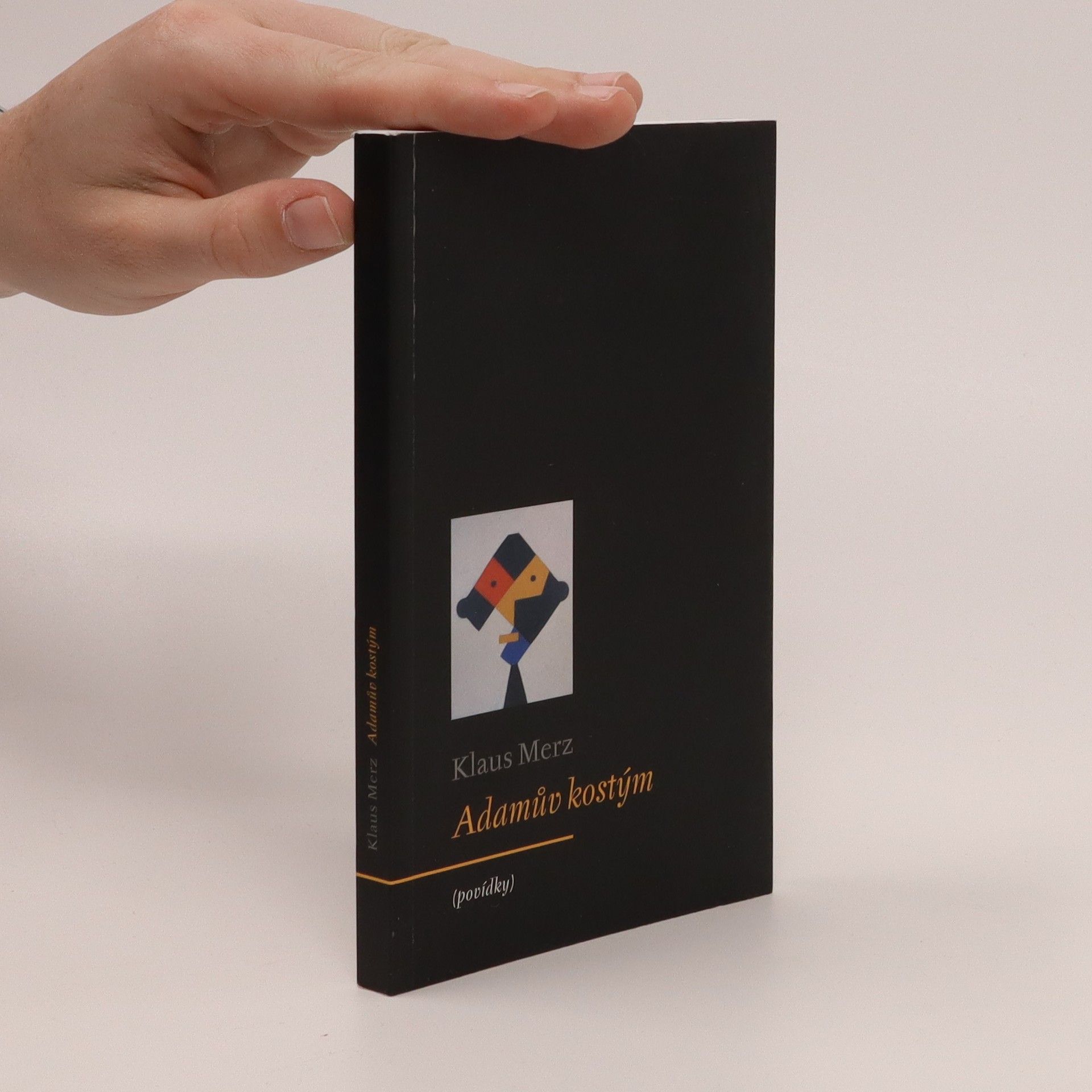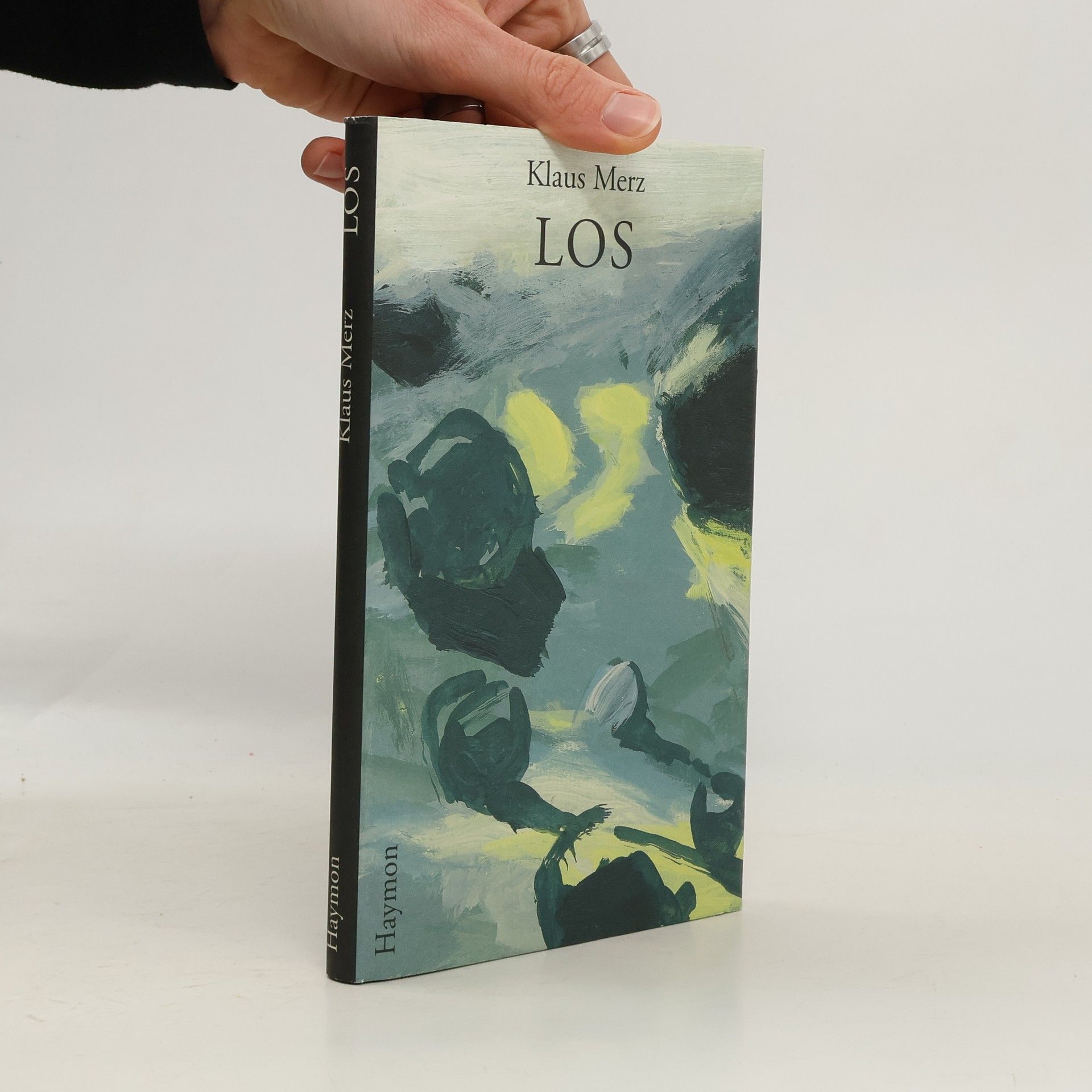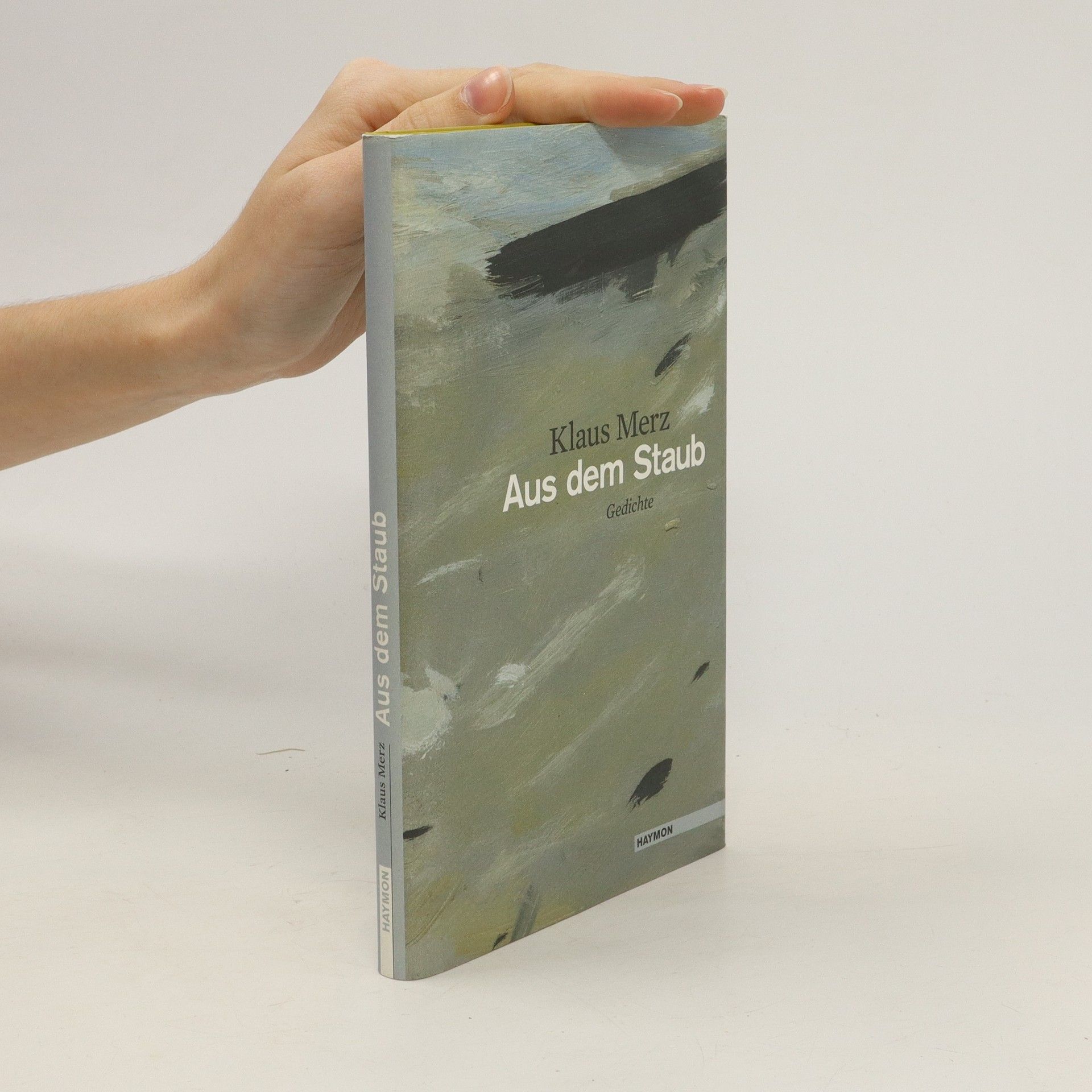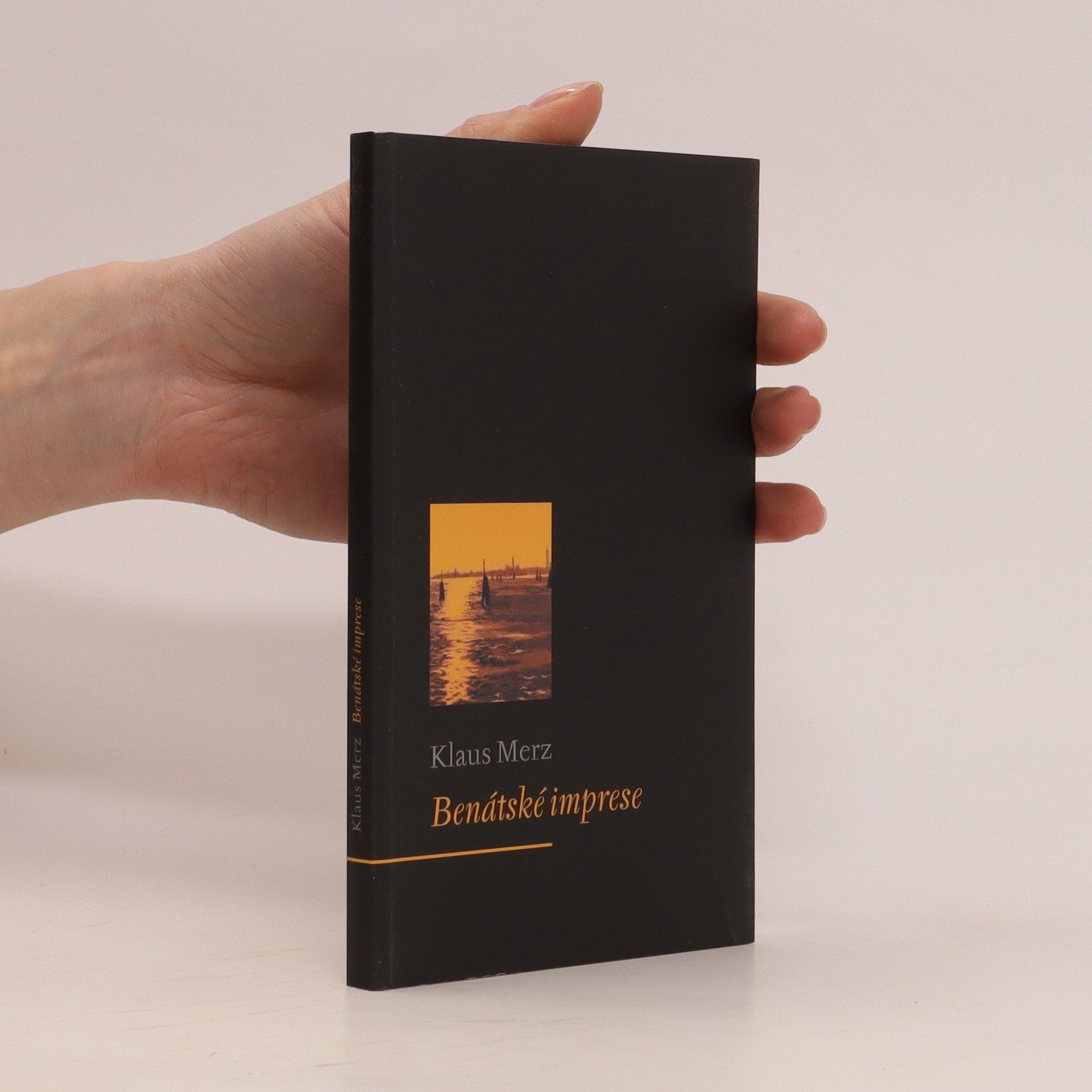Klaus Merz Libri
Klaus Merz è un acclamato autore la cui opera si distingue per la sua articolazione fluida, concisa e precisa. Sia come poeta che come narratore, possiede un dono notevole nel catturare l'essenza dei suoi soggetti con eccezionale chiarezza. La sua prolifica produzione comprende poesie, racconti, novelle e saggi, spesso esplorando il regno delle arti visive, oltre a opere radiofoniche, sceneggiature e opere teatrali. La voce distintiva di Merz e il suo magistrale dominio del linguaggio lo affermano come una figura significativa nella letteratura contemporanea.


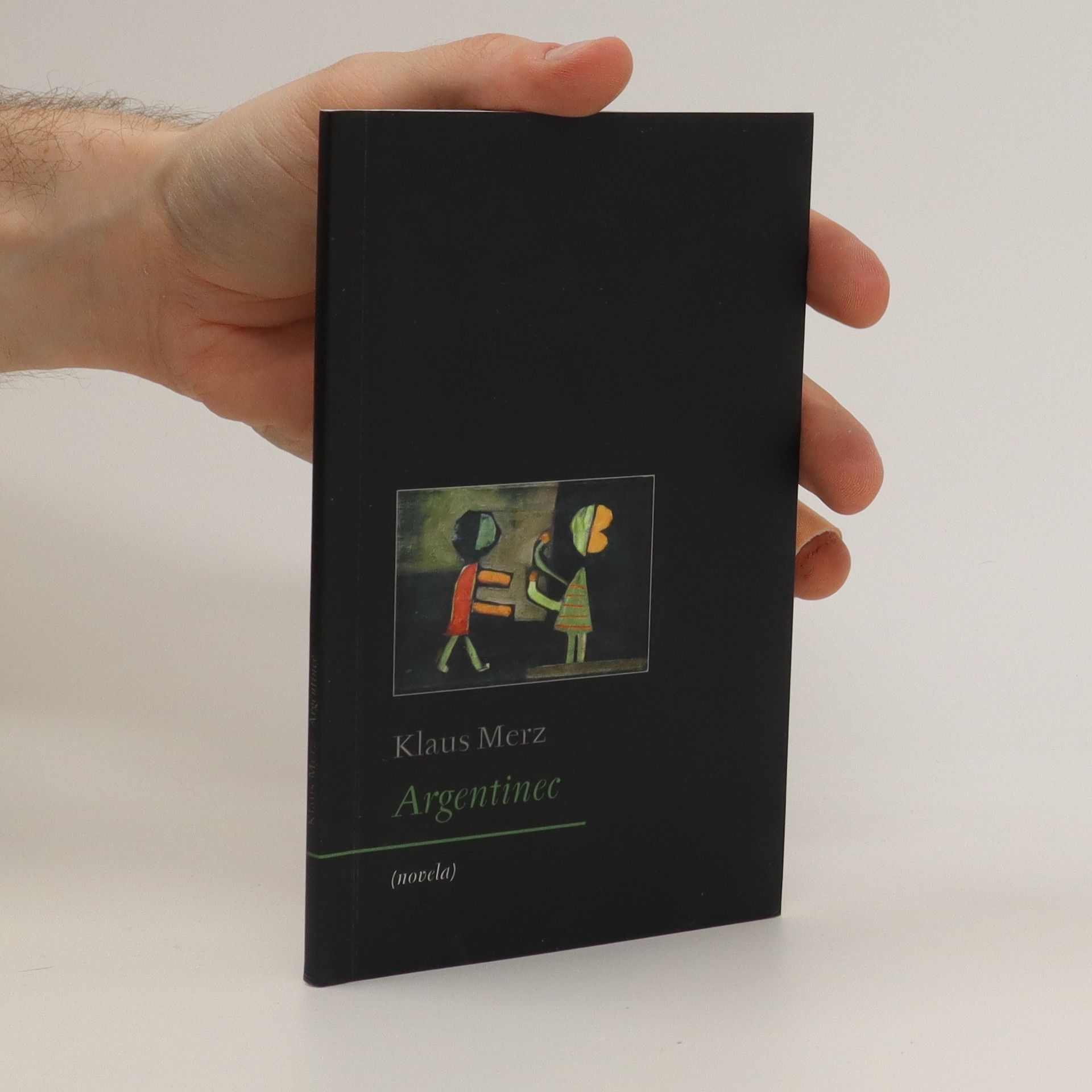
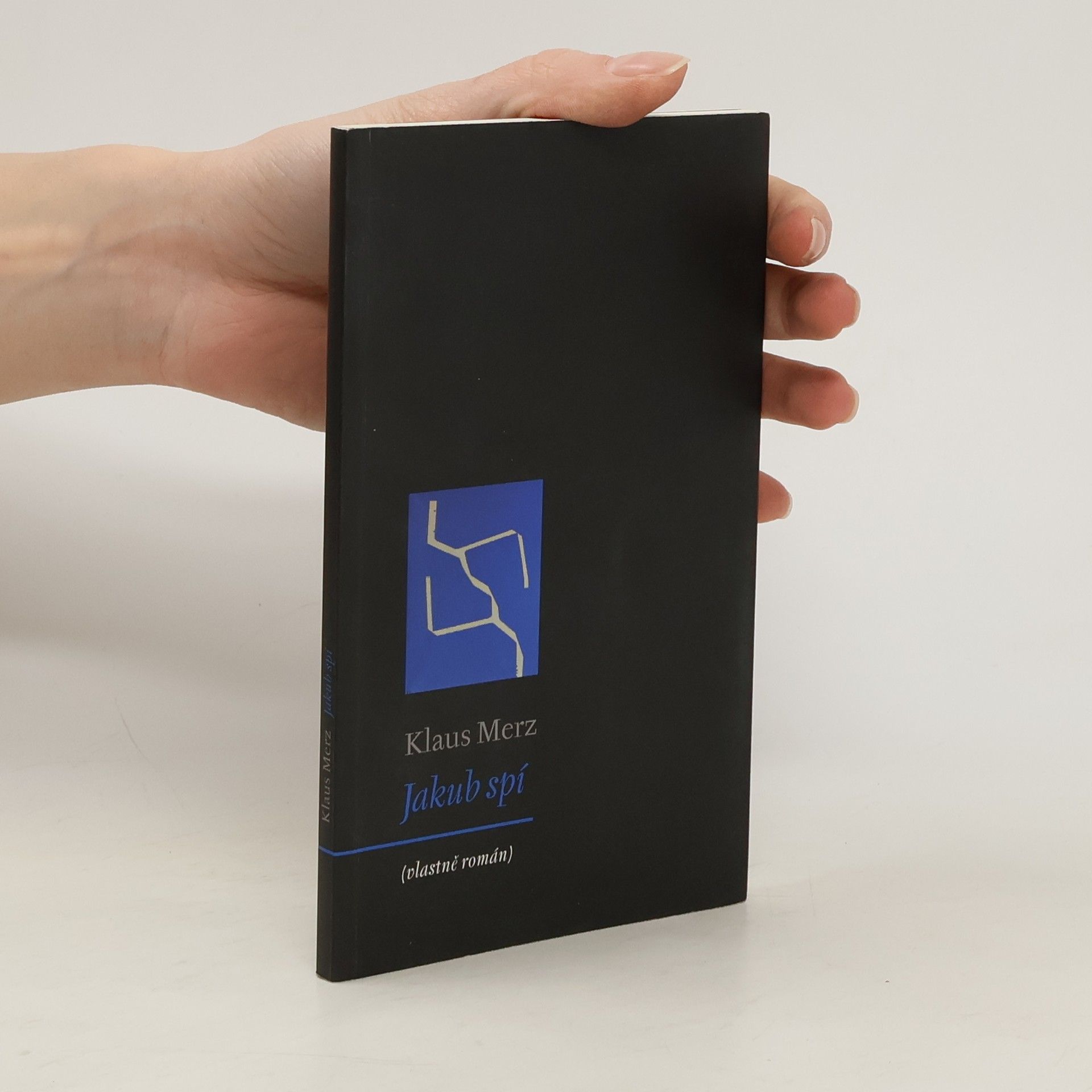


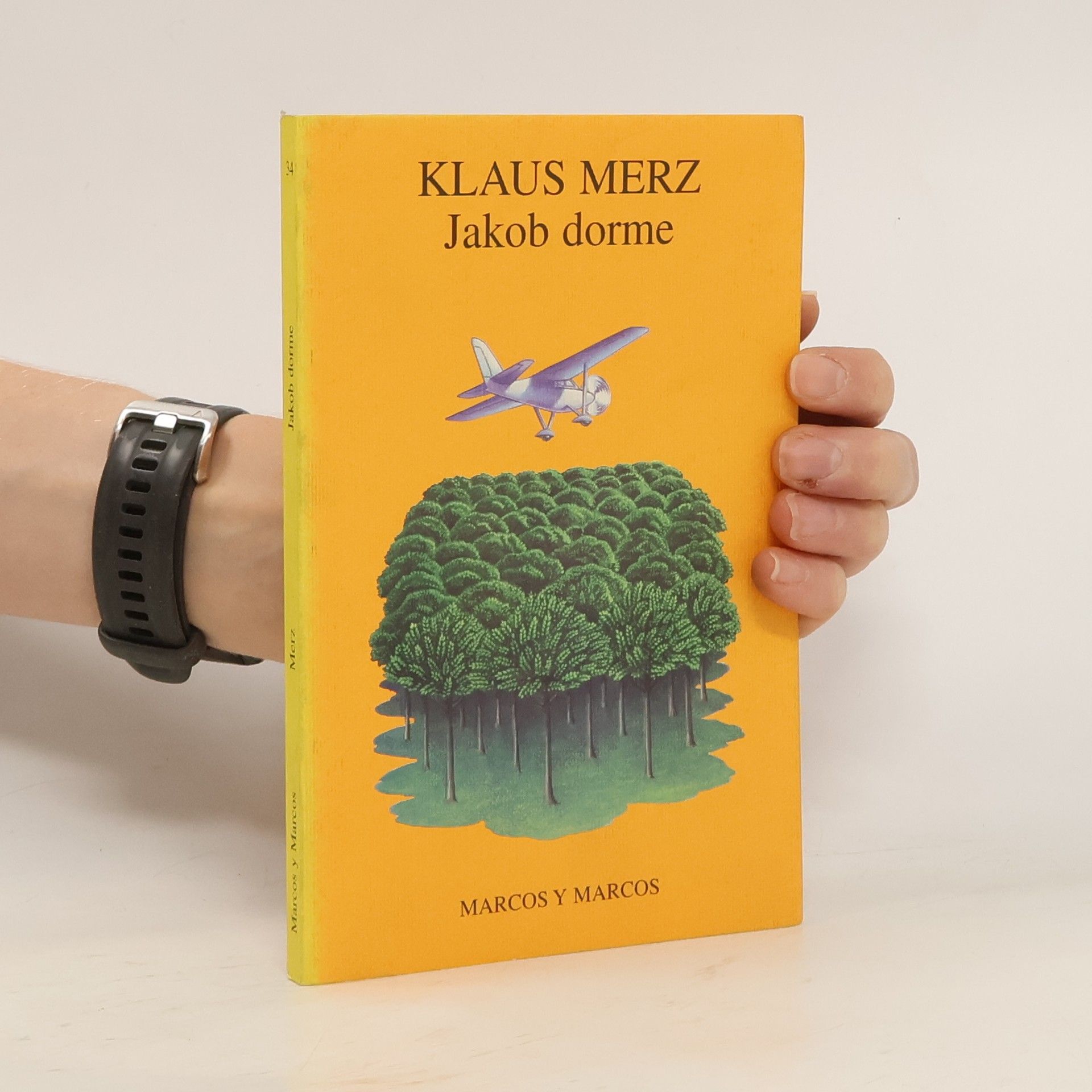
Stigmata of Bliss
- 152pagine
- 6 ore di lettura
Klaus Merz is one of the most prominent, prolific, and versatile Swiss writers working today. Celebrated as a master of concise, condensed sentences, Merz brings depth and resonance to spare narratives with lyrical prose and striking images. Stigmata of Bliss brings together three of Merz's critically acclaimed novellas, offering English readers the perfect introduction to his work. Jacob Asleep introduces a family marked by illness, eccentricity, and a child's death. In A Man's Fate, a moment of inattention on a mountainous hike upends a teacher's life and his understanding of mortality. And finally, The Argentine traces the fluctuations of memory and desire in a man's journey around the world. In each novella, Merz takes readers on a profound and intimate journey. Read as a whole, the works complement, enrich, and echo each other.
Krátký román je sledem sevřených poetických obrazů, inspirovaných autorovým dětstvím a osudy jeho rodiny ve švýcarském maloměstě poloviny 20. století. Vypravěč řadí za sebou vzpomínky na rodinu, postiženou mnoha ranami a neštěstími, přesto plnou životní odolnosti a neokázalé lásky. Až baladické příběhy, zhuštěné do silných poetických obrazů s prvky magického realismu, jsou nadané velkým vnitřním prožitkem. Nad rodinou jako by stále bděl duch Jakuba, vypravěčova bratra, který nešťastně zemřel při porodu. Román, pozoruhodný především svým osobitým, úsporným a vypjatým stylem, získal Cenu Hermanna Hesseho za rok 1997.
Argentinec
- 66pagine
- 3 ore di lettura
Když Lenin dědeček krátce po druhé světové válce nastupuje na palubu lodi do Buenos Aires, pluje vstříc dobrodružství v Novém světě, který mu nepřipadá tak unavený a opotřebovaný jako stará, válkou zničená Evropa. Ale neodbytná senná rýma ho brzy donutí vzdát se snu o svobodném pasteveckém životě. Místo toho se setkává s uměním tanga a s uměním milovat. Za dva roky se přesto vrací do vlasti a stane po boku Amélie, která na něj nepřestala čekat. Vzpomínku na dobu prožitou v cizině, která z něho udělala Argentince, žárlivě střeží jako cenný poklad a odkryje ji teprve po své smrti. Nevzrušivě, s jemnou ironií zachycuje Klaus Merz pohledem vnučky život muže, který nikdy nepřestal být sám sebou.
Ein Mann namens Dubois hat einen Autounfall. Im Krankenhaus hört er sich an, was er während der Fahrt auf sein Diktiergerät gesprochen hat. „Er betreibe mit seinen Notizen eine Art Spurensicherung, um nachlesen zu können, wo es hingehe mit ihm.“ Und er spricht weiter, „um gegen die zunehmende Unruhe aufzukommen“. Dubois protokolliert Lebensstationen, Erinnerungen, Wahrnehmungen. Erzählend wird ihm klar, wie die Sprache Wirklichkeit inszeniert, wie die Wirklichkeit erst in der Sprache Gestalt annimmt. Er erfährt auch, daß nichts selbstverständlich ist, wenn man genauer hinsieht.
Merzovy povídky a krátké prózy jsou tak obyčejné i rozmanité, tak podivné i poetické jako je sám život: nečekané setkání s věštcem, podivuhodný příběh neznámého vynálezce, teskný život siláckého přistěhovalce, klopotné hledání skromného vesnického umělce. Nemoc a smrt jako nedílná součást naší každodennosti. A autorovo umění zachytit přesným a střídmým výrazivem pomíjivost nálady, vystupňovat příběh překvapivým zvratem, a to tak lakonicky, že si vystačí mnohdy jen náznakem, kterým však dosahuje nebývalé výrazové preciznosti.
LOS. Das ist das Leben, das ist das alltägliche Abschiednehmen und: das ist das Verschwinden in den Tod. Eine ergreifende Geschichte über die Annäherung an einen verstorbenen Freund, der sich eines Tages aufgemacht hatte, um nicht mehr zurückzukommen
Aus dem Staub zeigt Klaus Merz einmal mehr als Meister der Verdichtung. Aus kurzen, sparsam gesetzten Versen entwickelt er ganze Lebensgeschichten, zeichnet mit bloßen Andeutungen Bilder voller Farben und Licht. Ob Klaus Merz über alltägliche Szenen schreibt oder in seine Erinnerungen eintaucht, ob er fremden Orten und Menschen begegnet oder vertrauten – stets gelingt es ihm, den Blick auf das Wesentliche zu richten und ihm seinen ganz eigenen Tonfall zu verleihen. Unter der Oberfläche seiner lakonischen Poesie blitzen Witz und feine Ironie auf, hinter dem ruhigen Vordergrund seiner Gedichte verbergen sich Momente voller Überraschung und Verstörung.
Sbírka básnických úvah švýcarského autora je inspirována jeho pobytem v proslulém městě na laguně. Autorovy poetické texty v sobě odrážejí melancholii i náladu města, které ho okouzlilo natolik, že v něm setrval půl roku. Benátky se pro něho staly pulzujícím a živým organismem, v němž se na jedné straně promítá bohatá historie, na druhé však probleskne v jeho verších občas i skeptický povzdech nad "pohyblivým základem, na němž už po staletí stojí". Merz se projevuje jako pozorovatel, který se smyslem pro detail zaznamenává běžné, všední události, dokreslující benátský kolorit: všímá si třeba pobíhajícího "trpasličího pinče", tající zmrzliny ve skleničkách nebo milenců, kteří "jdou společně nakoupit chléb a víno". Z takových drobných střípků pak skládá útržkovitý kaleidoskop, z něhož je pro něho nejdůležitější fakt, že příchodem každého nového dne se Benátky (i přes všechna proroctví o zániku) opět probudí do slunce a budou se lesknout v jeho paprscích. Merzova poezie se mnohdy v tomto cyklu blíží po formální stránce k lyrické próze: jeho verš je odrazovým můstkem do prostoru, který není nikdy uzavřen a dá se neustále rozšiřovat.
